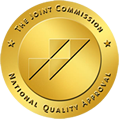California Sober is Not Sobriety At All
Singer Demi Lovato has recently caused quite a stir. In her new documentary called “Dancing with the Devil,” Lovato claims to now be “California sober.” She states that this approach in recovery is better for her than complete sobriety. That abstinence “only sets her up for failure.”
Ms. Lovato has struggled with substance use disorders for many years. In 2018 she nearly died from a heroin overdose. Still, she says she is able to live a life in moderation via the California sober method. It is a very risky approach.
Addiction expert Ken Seeley strongly opposes her claims. When speaking with the host of Entertainment Tonight, Seeley makes a valid point that partial sobriety is not sobriety. States Seeley, “You might not do heroin, but you may smoke pot. But the reality here is no moderation for people that suffer with addiction. You can’t just turn it off.”
Seeley knows of what he speaks. He is a highly acclaimed interventionist and has 31 years of sobriety under his belt. He runs a treatment complex in Palm Springs and is a renowned expert in the recovery field.
Seeley fears what harm coining a term like “California sober” could do. The term, which dates back to 2016 as a form of sobriety that allows alcohol and weed, could cause relapse. The danger to return to the drug of choice, like opioids, meth, or cocaine, is very real.
What Does California Sober Mean
While for most people the term California sober is a new one, it has been around for a while. Back in 2016 the Urban Dictionary defined the term to mean abstaining from all drugs except alcohol and marijuana. In 2019, an article in VICE describes it as only marijuana and psychedelics.
When someone famous promotes something like California sober it can inflict harm, even when they don’t intend to do that. Just the suggestion to an addict that it is okay to indulge in a psychoactive substance can result in the slippery slope to relapse.
Does California Sober Work
The term “moderation” means someone can drink alcohol with limits. It may be true that someone with a new or mild substance problem might be able to manage this approach. But those with a substance history like Lovato are surely putting their lives in danger. Ms. Lovato has nearly died on several occasions and has suffered strokes and a heart attack. Using any substance of any amount could trigger a fatal relapse.
Only a tiny number of people would be able maintain recovery while still using substances, no matter how seldom or how little. An addict cannot control the use of substances. One drink could become a bender, which can have fatal results. Even more so for someone who has been sober for any length of time. The body has adjusted to the absence of the substance and can’t manage the amount that was formerly used. By attempting moderation they could then return to an opioid, which is often a lethal event.
Why Abstinence Is Ideal in Recovery
In her remarks about being California sober, Demi Lovato has also stated that her way is not for everyone. She knows that this method may not work for other people, but feels it is an answer for herself. Only time will tell if she is correct.
Abstinence is, though, a more prudent approach to recovery. It is too risky to expose oneself to any substance when trying to sustain recovery. While it may be difficult to adapt to a sober lifestyle, it is still needed in order to succeed. The brain will not heal if there is the presence of any substance.
A Multi-Modal Treatment Approach
When seeking help for a substance problem you engage in a layered program that leads to making real changes in your life. Detox is simply not enough to sustain abstinence. To achieve abstinence from drugs and alcohol you must change your thought process and how you respond to triggers.
Here is what to expect in a comprehensive rehab program:
- Detox. The detox process provides support and relief as withdrawal symptoms emerge. An expert detox team will manage the symptoms and help prevent any medical events. This support also keeps the client moving forward on their treatment pathway.
- Evidence-based therapy. These proven therapies have been studied and shown to produce the best results. Some of these therapies include CBT, DBT, MET, and CM.
- Peer group support. Group therapy helps peer in treatment to form bonds. The group sessions foster a sense of mutual support.
- Family therapy. Families are often affected by the substance use problem of a loved one. It can be helpful to all members to work together and learn how to support their family member.
- Dual diagnosis treatment. Many with substance use disorders also have a mental health disorder. Choose a rehab with this special expertise so it is equipped to manage both disorders at the same time.
- Classes. In recovery you will need new coping skills. These techniques will help you to become stronger in your life after rehab. Also, you will create a tailored plan to prevent relapse.
- 12-step programming. Recovery meetings, such as AA, NA, or SMART Recovery, are often central to the rehab program.
- Holistic methods. In treatment you will learn new ways to relax, which can help in recovery to reduce stress levels. These might include yoga, massage, and mindfulness.
- Recreation. Treatment programs often include outdoor activities, such as hiking, group sports, and outdoor yoga.
Do not place your recovery at risk after working so hard to achieve sobriety. Stay the course and commit to a new healthy lifestyle that will lead to a bright and fulfilling future.
Ken Seeley Communities Provides Addiction Recovery
Ken Seeley Communities is an addiction treatment program with experienced treatment experts. KSC covers all the bases, from interventions to detox to outpatient or inpatient rehab to sober living housing. Call us today for more details about our program at 844-230-4911.



